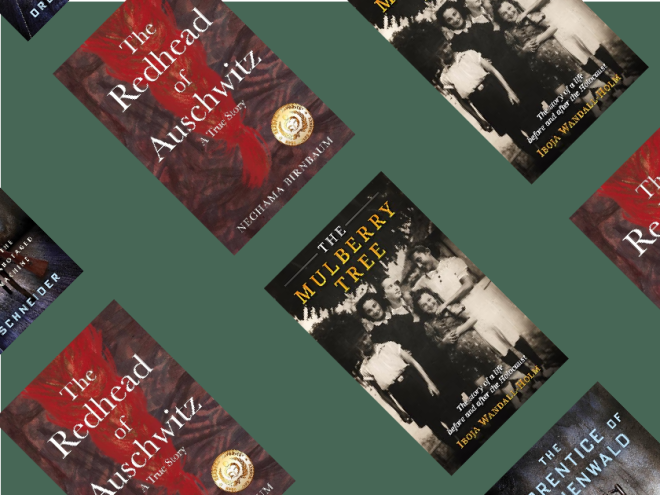By
– December 12, 2011
Sherman Jacobson came to The National Jewish Center for Learning and Leadership (CLAL) with the concept of stories from the Shoah that could be read each Shabbat and on holidays, “so that as we celebrate life today, we would remember yesterday.” It would be a supplement to the Siddur. Wisely, Rabbi Hirschfield narrowed the choice of stories (which had to be gleaned from hundreds of testimonies) to ones of hope, referencing that the “rabbis of two thousand years ago …assigned remembering Jewish tragedies to three weeks in the summer and celebrated Jewish life throughout the year.” The book begins with Genesis and concludes with Deuteronomy. The list of readings includes the traditional title plus a themed title (Bere’shit/Creativity; Noah/Survival, etc.). There is a separate story for each Shabbat. The result is a slender volume of stories that teach about “life, ethics, decency and love.” While there is still heartbreaking material here, so too are there moments of goodness, consideration, and even miracle. For instance, after a man who cannot play a violin is beaten to death for his “crime,” the next candidate is a violinist but, paralyzed with fear, he cannot play. At the last moment he begins to play “The Blue Danube,” a waltz that captivates the SS officer who beats out the rhythm with his baton. The miracle is that this is a piece the violinist didn’t even know and had never played before. Not all the stories are so happy but one that especially fascinated me is about a Jewish boy from the Lublin ghetto who started walking back to Krakow, where his father and brother are, at ten to twenty miles a day. He would stop each night at a farmer’s house, knock on the door and say in Polish, “May Jesus be blessed, and they would answer, ‘Amen’.” Although there was a generous reward for reporting a Jew, which he obviously was, each one of them fed him, let him sleep over and gave him some bread for the road. One time one of the farmers disappeared and the boy thought that this was the end. Instead, he came back with a jar of money and said to him “Krakow is still far away, buy yourself a ticket and get yourself home.” Who knows how widely this book will be adopted, but it is a good idea and a worthwhile collection.
Marcia W. Posner, Ph.D., of the Holocaust Memorial and Tolerance Center of Nassau County, is the library and program director. An author and playwright herself, she loves reviewing for JBW and reading all the other reviews and articles in this marvelous periodical.





